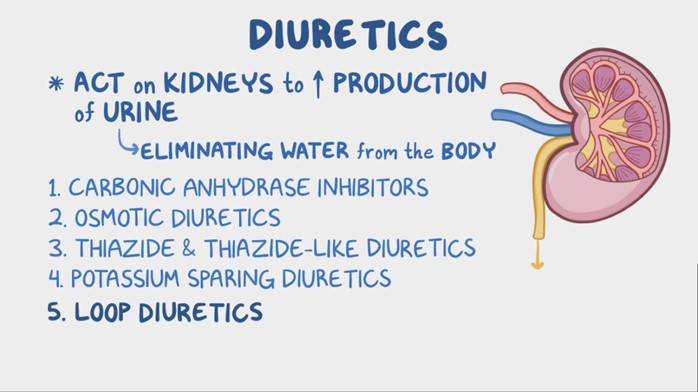Anune is assessing a client who is receiving total parenteral nutrition (TPN). The nurse should identify which of the following findings as an adverse effect of TPN?
Hemoglobin 16 g/dL
Temperature 36.1°C (97°F)
Blood glucose 98 mg/dL
Weight gain of 1.5 kg (3 lB. per day
The Correct Answer is D
Choice A reason: Hemoglobin 16 g/dL is within the normal range for adults and does not indicate an adverse effect of TPN.
Choice B reason: Temperature 36.1°C (97°F) is normal and does not indicate an infection or inflammation, which are possible complications of TPN.
Choice C reason: Blood glucose 98 mg/dL is normal and does not indicate hyperglycemia or hypoglycemia, which are common problems associated with TPN.
Choice D reason: Weight gain of 1.5 kg (3 lB. per day is excessive and indicates fluid overload, which can result from too rapid or too high infusion of TPN. Fluid overload can cause edema, hypertension, heart failure, and pulmonary congestion.
Nursing Test Bank
Naxlex Comprehensive Predictor Exams
Related Questions
Correct Answer is A
Explanation
Choice A reason: Navy beans and ham are good sources of potassium, which can help prevent hypokalemia, a common side effect of some diuretics. Hypokalemia can cause muscle weakness, cramps, fatigue, and cardiac arrhythmias.
Choice B reason: Cheddar cheese is high in sodium, which can cause fluid retention and increase blood pressure. Sodium intake should be limited when taking diuretics, as they can also cause hyponatremia, a condition of low sodium levels in the blood.
Choice C reason: Beef broth is also high in sodium, which can have the same effects as cheddar cheese. In addition, beef broth is high in purines, which can increase uric acid levels and cause gout, another possible side effect of some diuretics.
Choice D reason: Baked potato is high in carbohydrates, which can raise blood glucose levels and worsen diabetes, a risk factor for hypertension. Some diuretics can also cause hyperglycemia, a condition of high blood glucose levels in the blood.

Correct Answer is B
Explanation
Choice A reason: Creatinine 1.3 mg/dL is slightly elevated, but it does not indicate fluid volume excess. Creatinine is a waste product of muscle metabolism that is filtered by the kidneys. High creatinine levels can indicate kidney damage or impaired renal function.
Choice B reason: BNP 300 pg/mL is high and indicates fluid volume excess. BNP stands for brain natriuretic peptide, which is a hormone released by the heart when it is stretched by increased blood volume or pressure. High BNP levels can indicate heart failure or fluid overload.
Choice C reason: Potassium 3.5 mEq/L is within the normal range (3.5-5.0), and it does not indicate fluid volume excess. Potassium is an electrolyte that helps regulate nerve and muscle function, especially the heart. Low or high potassium levels can cause cardiac arrhythmias, muscle weakness, or paralysis.
Choice D reason: Sodium 140 mEq/L is within the normal range (135-145), and it does not indicate fluid volume excess. Sodium is an electrolyte that helps maintain fluid balance, blood pressure, and nerve impulses. Low or high sodium levels can cause confusion, seizures, or coma.
Whether you are a student looking to ace your exams or a practicing nurse seeking to enhance your expertise , our nursing education contents will empower you with the confidence and competence to make a difference in the lives of patients and become a respected leader in the healthcare field.
Visit Naxlex, invest in your future and unlock endless possibilities with our unparalleled nursing education contents today
Report Wrong Answer on the Current Question
Do you disagree with the answer? If yes, what is your expected answer? Explain.
Kindly be descriptive with the issue you are facing.
